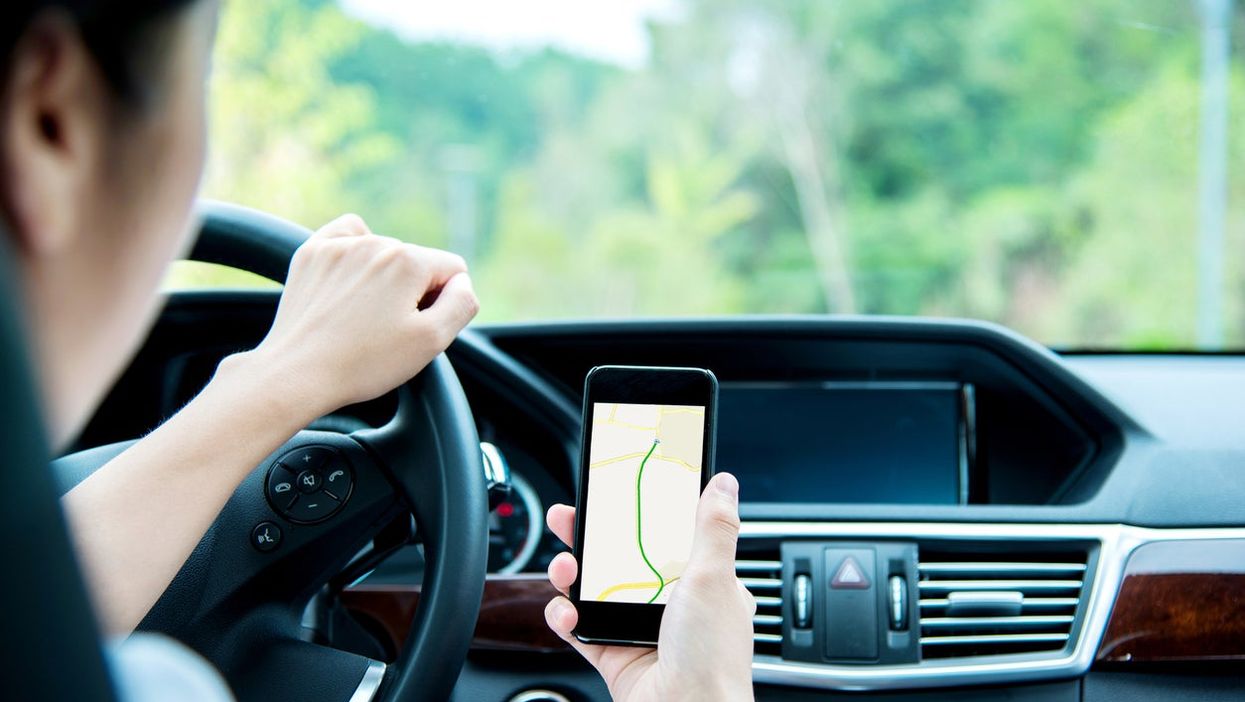News
Joe Vesey-Byrne
Jan 01, 2017

Britons could end up with poorer quality satellite navigation than their continental neighbours
Getty
The state in which it's already illegal to text or make calls while driving is one step closer to banning any kind of smart phone usage in the car.
From 1 January 2017 it will be illegal to have your phone in your hand while you're on the road.
The state, already one of the strictest for prohibiting mobile use while driving, is about to become even more regulatory.
Persons wanting to use their phone as a GPS or Sat-Nav device will have to mount their phone on the windscreen.
The state legislature passed AB 1785 in concurrence vote by 52 votes in favour to 20 against in August 2016.
The act repealed certain sections of the existing vehicle code, and added the requirement for the phone to be mounted.
In addition the bill demanded that the only actions that could be taken on the phone were those that needed nothing more than a single swipe or tap.
It was signed into law by the Governor of California on 26 September.
Drivers found in breach will receive a $20 USD for their first offence, and $50 for a subsequent offence.
According to a statement released by the proponent of the bill, assemblyman Bill Quirk (Democrat), there was 500 injury collisions caused by use of a mobile while driving, in 2015, and 12 fatal collisions.
California's newly elected senator Kamala Harris also endorsed the measure.
The law is intended to deal with "distractions", yet some scientists have argued that the problem is not the physical holding of a mobile phone that causes accidents.
In an article on the website of the American Association for the Advancement of Science (AAAS) quoted psychologist Todd Horowitz, who argued that hands free may not make you more likely to concentrate.
While it is undoubtedly safer to keep one's hands on the wheel, Horowitz claimed that conducting a phone call conversation is also extremely distracting.
An experiment which asked participants to complete a visual task while conducting a conversation on hands free showed that talking decreased their success in completing the task.
Horowitz also found that it was neither the act of talking or of listening that caused distraction, but the moment in between these two actions.
It's not listening. It's not moving your mouth and making sounds and making words. It's that intervening bit, where you have to actually think about what you're going to say and generate some new content for whoever you’re talking to.
Horowitz noted that this can happen also with passengers in car, but added that passengers will often go quiet when they can see a driver needs to concentrate on the road.
The efficacy of AB 1785 will be difficult to measure, given the difficulties in measuring distraction as a cause of road collisions.
HT Mashable
More: Five seriously useful Facebook settings you probably aren't using
More: 14 questions you always wanted to ask a 911 dispatcher, answered
Top 100
The Conversation (0)













